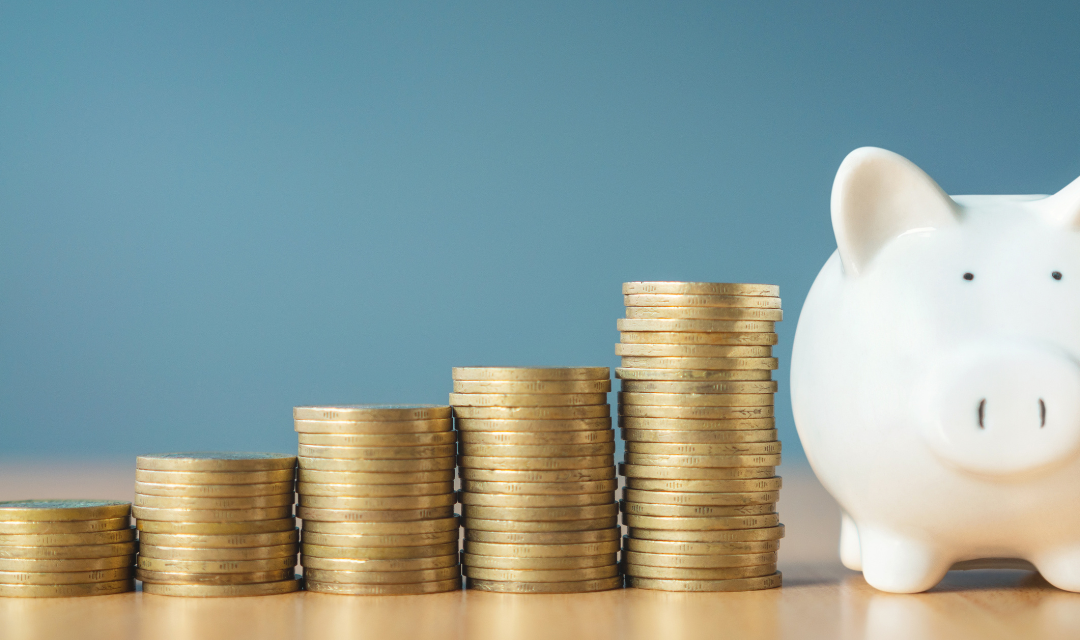There are many ways to accumulate wealth over time. From bank accounts to buying shares, investing in managed funds and buying property, there’s a range of investment choices out there that could suit you. Accumulating wealth can make a huge impact on your life, especially in your retirement, so it’s important to make a plan and get started – sooner rather than later.
Investing versus savings
Saving in a bank account means you can access your money whenever you want. Savings are usually used for that holiday or emergency fund and other short-term goals where you want to add amounts regularly and see the balance grow, which is a great idea.
We have a mentality that saving is investing – but saving is more short term. Saving usually means using a bank account which is more of a low-risk option, but that means the return you earn will be lower as well.
Investing does have higher risks attached, but the potential for greater returns on your money. You could invest in products once you have determined your risk profile and understand your current financial position, including your goals. This does take some consideration because the pathway will change depending on your income and commitments at different stages of your life.
Have you reviewed your KiwiSaver fund lately?
If you make regular contributions into your KiwiSaver you might notice it building up nicely over time. It’s important to check how your provider is performing. There are a few things to be aware of, such as the fees you are paying and the contribution rate you are paying into the fund. Your employer will be contributing too, so make sure you see those regular contributions going in.
Employees can choose to contribute 3%, 4%, 6%, 8% or 10% of their gross (before tax) wage or salary to their KiwiSaver account. Employers are required to contribute 3% of your gross salary if you contribute. There’s an annual government contribution as well, even if you’re not an employee – as much as $521 each year until you’re 65.
It’s a good idea to check your risk profile hasn’t changed and you are in the most appropriate fund. KiwiSaver should not be a set-and-forget fund. Along with knowing know how much is going into your fund (from your contribution and your employer), it’s important to know how your money is invested. Whether it’s cash, fixed interest funds, property, or shares, or a mix of them all, you need to have the right mix of investments.
Check in with your fund to see if you are invested into a conservative fund, a balanced fund or a growth fund. Most funds have an online risk profile tool that helps you work this through by answering a few questions to work out what’s the best approach for you.
For example:
- What’s your investment timeframe?
- When do you need the funds?
- Have you ever invested in anything other than cash?
- How do you feel about market fluctuations and the impact on your investment value?
- Are you prepared to take some risk to achieve higher returns?
If you are 20 or more years from retirement you need to realise being in a low-risk (cash-based) fund is not going to get you to your savings goals. On the other hand, being in a high-risk fund is more likely to get you to a target that is acceptable to you. That’s how your asset allocation can make a huge difference.
Your risk profile may change over time, depending on how long you have left to go before retirement or if you are saving into KiwiSaver to help fund your first home deposit.
Also remember that once your KiwiSaver hits a certain value it may be worthwhile looking at other managed funds and consider having a mix of different funds which you contribute to.
If you are still unsure, seek advice from a Financial Adviser, so you get into the most appropriate investment fund for your needs.
Save small amounts often
You can save or invest small amounts often to reach both your short- and long-term goals. Once you have tackled your budget and worked out what’s left over, make it work for you. Even just $20 a week will add up over time. And remember those magical words “compounding interest” – when the interest you earn on your investment or savings earns interest.
If you are contributing to your KiwiSaver fund and or other investment funds each pay period, you might be surprised to see how this regular investing adds up, and you might hardly notice this out of your pay packet. Remember, when investing in KiwiSaver, your employer will continue to contribute as long as you do, and the government will continue to make its annual payment as well.
Having a savings and investment goal can make a huge difference to your financial position over time. It’s rewarding to see your hard-earned money accumulate and grow to give you more financial freedom so you can have a better-quality lifestyle and retirement.





